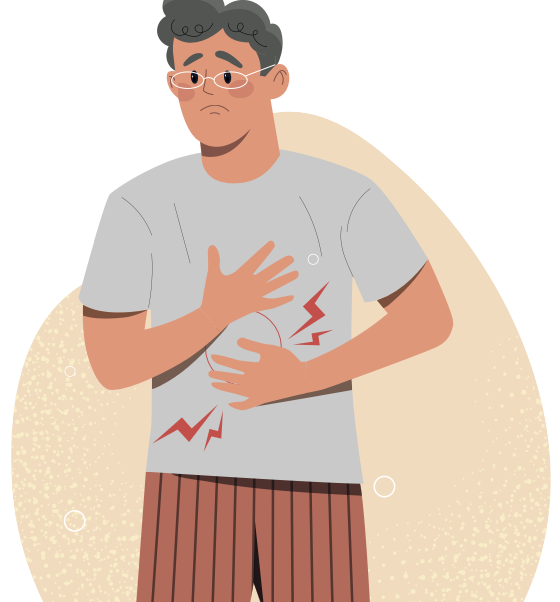I’m 65, and I often feel burning in my chest after dinner, especially if I lie down after eating. What’s going on? Should I see my doctor?
By Wendy Haaf
The sensation you’re describing sounds like heartburn, which is a classic symptom of a condition called gastroesophageal reflux disease (GERD). The fiery feeling—which can extend up towards the neck—tends to occur after eating and often worsens when you bend over or lie down.
Affecting an estimated one in five North American adults, “GERD is one of the most common diseases seen by gastroenterologists, surgeons, and family physicians, and it’s even more common in people over 55,” says Dr. Jeff Mosko, a gastroenterologist at St. Michael’s Hospital in Toronto. The name GERD simply refers to what’s happening—a backward flow (reflux) of acid from the stomach into the esophagus, the tube connecting the throat and stomach. Another typical symptom is regurgitation, or “the effortless return of stomach contents towards the mouth that’s often accompanied by an acid or bitter taste,” Mosko says.
Since you’re having more than an occasional bout of heartburn, it’s a good idea to see your doctor. “Patients with frequent symptoms often need evaluation,” Mosko explains.
Getting GERD under control is important, and not just because it can improve your quality of life. When the lining of the esophagus is chronically exposed to acid, it becomes inflamed. Over an extended period, this can lead to complications, the most serious of which is esophageal cancer. Consequently, Mosko says, “we want to control that inflammation.” (If you have a history of long-standing, untreated GERD symptoms, ask your doctor to refer you for a test to check for pre-cancerous changes.)
The first step is to adopt lifestyle changes that can help manage symptoms. “One of the first things is avoiding ‘trigger foods,’” Mosko says. These include fried or fatty foods, chocolate, peppermint, caffeine, alcohol, tomato sauce, and citrus.
Other strategies ease stress on the drawstring-like muscle separating the esophagus from the stomach—the lower esophageal sphincter (LES). Losing a bit of excess weight, not eating within two to three hours of bedtime, eating smaller meals, and avoiding tobacco products fall into this category. (Nicotine can contribute to GERD in several ways; for starters, it relaxes the LES.) And if your symptoms strike at night, elevate the head of your bed using bricks or books.
If non-drug measures don’t work, “we recommend that patients take an eight-week trial of prescription medications called proton pump inhibitors [PPIs],” Mosko explains. Taken once daily 30 minutes before a meal, PPIs powerfully reduce the production of stomach acid.
At the end of the trial period, if the drugs have worked, Mosko says, “we ask patients to discontinue the medication and take it as needed, after they’ve implemented all the lifestyle modifications.”
While a handful of patients may need to continue taking a PPI or undergo additional testing, that’s not the case for most. “Only a small few end up needing to see a gastroenterologist,” Mosko says.
To learn more about GERD, visit the Canadian Digestive Health Foundation’s website: CDHF.ca.






